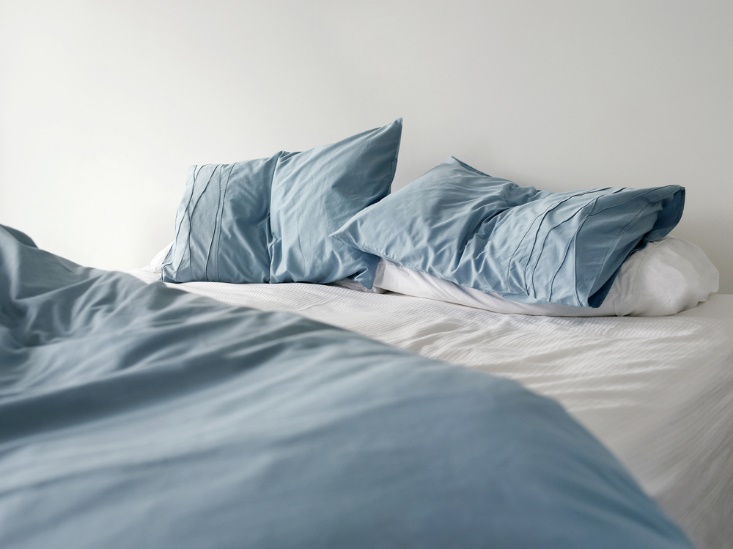Table of Contents
Your mattress, your comforter, your sheets, your pillows — every element of your bed should come together to make a perfectly cozy space that facilitates fast, deep sleep. Once you find the right combination of bedding for you, you could stick with it for life.

However, if there is one element you probably need to change, it’s your pillows. Pillows are supposed to support your head and neck while you sleep, but if you have the wrong pillows on your bed, you could be harming your long-term health and preventing yourself from obtaining the best possible sleep.
If you never thought about your pillows before, it might be time to learn a bit about them. Here are some facts about pillows and some tips for finding the right pillows for you:
Older Pillows Are Mostly Dead Skin and Bugs
Have you ever noticed that pillows start to get heavier as they get older? That’s because they are gaining weight — in the form of your dead skin cells and the bugs that feast on them. According to a study by the London NHS Trust, up to a third of the weight of your pillow is dead cells, house and dust mites and the mites’ feces.
That’s gross, but it is also bad for your health. Many people unknowingly suffer from allergic reactions to dust mites, but because these allergies exhibit similar symptoms to more common seasonal allergies, you might not realize that your pillow is making you feel sick. If you have difficulty breathing, sneeze frequently and have a runny nose even when pollen counts aren’t high, your pillow could be the culprit.
Synthetic Pillow Fills Can Cause Health Problems
It isn’t just old pillows you need to worry about. Some brand-new pillows are as dangerous to your health as the ones packed with mite feces. Synthetic pillow fills are made with chemicals that can have adverse health effects, even if you aren’t sensitive to them. Some of the worst chemicals found in pillows largely include volatile organic compounds (VOCs), which can cause headaches, damage to the nervous system and respiratory tract irritation, but there are other compounds you should worry about, too:
- Chlorofluorocarbons
- Formaldehyde
- Benzene
- Bleach
- Pesticides
Generally, it is safer and smarter to invest in a natural pillow. The best option is organic latex, which is harvested from chemical-free rubber trees, but you can also find ethically sourced down pillows and pillows made from organic cotton and cruelty-free wool.
 Some Pillow Shapes Wreck Your Posture
Some Pillow Shapes Wreck Your Posture
Ideally, pillows keep your spine in a neutral position, aligning your head and neck with the rest of your backbone to protect your nerves and muscles. However, some pillows are exceedingly bad at this, and others downright prevent you from reaching a neutral spine.
It all depends on how you sleep. Here is a quick guide to the best pillow shapes for your favorite sleeping position:
- Back sleepers need thin pillows. Back sleeping is the safest for your spine, and your head and neck need minimal support to stay safe through the night.
- Side sleepers need thick pillows. Your spine is half your body width away from the mattress, so your head and neck should be, too. You should opt for a firm or extra-firm pillow with plenty of height.
- Stomach sleepers don’t need pillows. Stomach sleeping is the most dangerous for your spine because it pulls your lumbar vertebrae down into your mattress and forces your neck upwards. If you can’t sleep any other way, you should at least eliminate your pillow, which further contorts your back.
If you switch sleeping positions throughout the night, you might need to address other elements of your sleep environment, like the temperature of the room, the noise and light levels or your sleep partners.
You Need to Find the Perfect Pillow for You
Finding the right pillow shouldn’t be a lifelong pursuit. By thinking about your health concerns, your preferred sleeping positions and other aspects of your lifestyle, you should be able to create a list of must-haves for your perfect pillow. Then, you can set about finding that pillow online — perhaps from a small business focused on sleep health and sustainability. In truth, worrying about your pillows shouldn’t keep you up at night — so the sooner you switch to brand-new pillows, the better.

 Some Pillow Shapes Wreck Your Posture
Some Pillow Shapes Wreck Your Posture






Comments 1